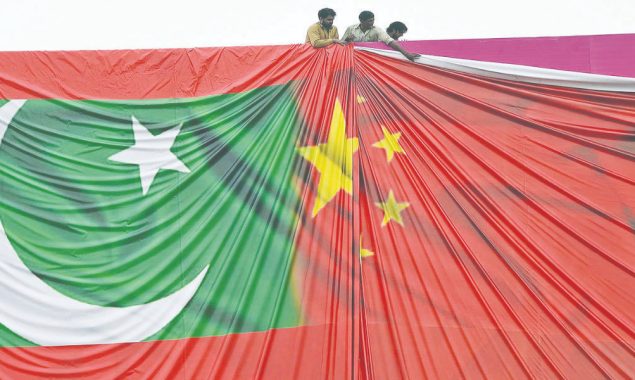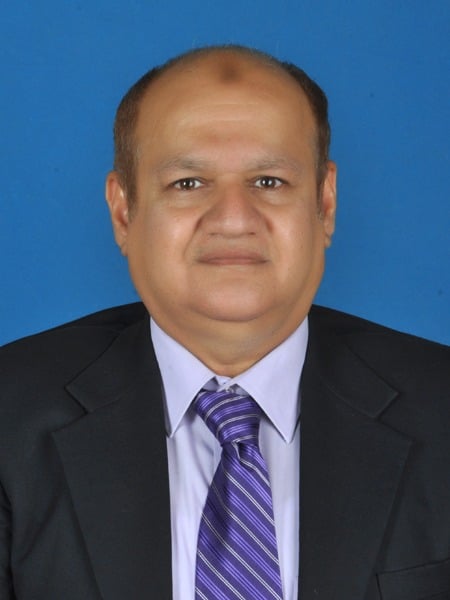Synopsis
Chinese investors agree to set up industrial units in Special Economic Zones

ISLAMABAD: Prime Minister Imran Khan’s much-anticipated visit to Beijing has not only cleared the ambiguities over the viability of the China-Pakistan Economic Corridor (CPEC) projects, but also attracted investment worth billions of dollars in various sectors.
During the visit, the two sides also chalked out a plan for CPEC’s Phase-II, which involves huge incentives for the Chinese investors to relocate or set up new industrial units in the Special Economic Zones (SEZs).
Pakistani officials say that the Chinese leaders have assured financial support to the country, including overcoming its fiscal deficit and balance of payments crisis.
Finance Minister Shaukat Tarin termed the visit successful and said that 20 leading Chinese companies have expressed willingness to invest in the SEZs.
The premier held intensive meetings with Chinese President Xi Jinping
“President Xi was very optimistic on the future of CPEC and assured full support to us in overcoming the economic crisis,” Tarin said.
Though he admitted that the Chinese authorities have some reservations over the delay in the payment to their independent power producers (IPPs) and security issues, these have been resolved.
“We already paid a huge instalment of dues to the Chinese IPPs and established a revolving fund for automatic payments to the financial institutions on account of debt and interest payment to ensure that the receivables of the Chinese companies do not increase from a certain level,” he said.
However, Tarin said that the Chinese IPPs have refused to renegotiate on the terms and conditions of the agreement and ethically they have the right to do that.
The finance minister dispelled the impression that the prime minister has requested China for a $2 to $4 billion loan. “We never indicated or mentioned that we will ask China for any loan, whatever published in newspapers or discussed in the news channels was mere speculation and nothing else,” he said.
However, he admitted that Pakistan has sought Chinese help to overcome the fiscal deficit and balance of payments crisis and the Chinese leaders have assured their support. “Two to three billion dollars are very small numbers. China has agreed to help us out in resolving all the financial and economic problems,” he added.
Sustainable Development Policy Institute Executive Director Dr Abid Qaiyum Suleri also endorsed the views of the finance minister and said that the main purpose of the premier’s visit was mainly to express solidarity with China, which as a host of the Winter Olympics, faced unpleasant situation after some western countries announced to boycott the games at the official level.
“The PM’s visit was quite significant because it bridged the trust deficit, which occurred due to the Dasu incident in which Chinese workers lost their lives and a delay in the payments to Chinese IPPs,” he said.
Since compensation to the victims of the Dasu incident has already been made and the payment issue of IPPs has been resolved, there is a likelihood that the work on the second phase of CPEC will speed up in the coming days, Suleri added.
Information and Broadcasting Minister Fawad Chaudhry said that a Chinese company wants to establish a steel melting plant in Gwadar, whereas another wants to start mining in Balochistan.
China wants to relocate many of its industries, especially textiles to the Philippines, Vietnam and Pakistan, he said. “Because of cheap labour and strategic location, we have an edge over Vietnam and the Philippines to attract Chinese investment.”
Chaudhry said that the development work on the SEZs will also be put on fast track to facilitate the investors in establishing an industry.
Chinese Premier Li Keqiang said that under CPEC Pakistan has developed one of the most modern road networks, which it should now use to attract investment.
During the visit, Prime Minister Imran Khan also requested China to import rice and cement worth at least $1 billion to reduce the imbalance in bilateral trade between the two countries, which is heavily tilted towards China.
Special Assistant to the Prime Minister on CPEC Khalid Mansoor in a media briefing said that the government has decided to exempt Chinese investors from around 37 approvals for investment projects in Phase-II.
Mansoor said he would be unable to quantify the investment commitments for the second phase of CPEC, but can say that it would be in billions of dollars provided the relevant authorities and the nation as a whole worked together in materialising the future Chinese investment at a later stage.
“We have shared with President Xi Jinping and Prime Minister Li Keqiang a pitch book of competitive advantages for their investments and relocation of industries in comparison with other investment destinations that they would now consider and get back with the investment proposals,” he added.
The Chinese president was also invited to visit Pakistan, which he acknowledged, and said that he would decide about it at a later stage.
Meanwhile, it was decided that the two sides would remain engaged at the foreign ministers’ level to review the progress on the meetings held during the recent visit, as well as the investment proposals presented by the Chinese companies.
“We have taken a historic decision a few days ago to shift investment proposals to compliance regime, instead of an arrangement that requires 37 federal and provincial approvals,” Mansoor said, adding that it would now be the responsibility of the Chinese investors to comply with the law of the land.
“We have legally empowered them to invest in SEZs without prior approval.”
Besides, the prime minister made a personal commitment to the Chinese leadership that he stood by these arrangements and would himself immediately address any problem that the Chinese investors may come across on top of the institutional arrangements such as the CPEC Authority, Cabinet Committee on CPEC and Steering Committee on CPEC, he said.
The CPEC framework agreement envisaged an investment of $53 billion in Phase-I under which $25 billion had already been materialised in the power sector, as 5,300MW projects were up and running and 3,500MW projects would be completed in the next six to nine months.
The remaining $28 billion infrastructure projects were under various stages of implementation and financial close, Mansoor added.
Based on the resolution of outstanding issues, the prime minister also highlighted that the insurance cover for starting key hydropower projects had been held back by China and desired that the insurance firm Sinosure underwrite political and commercial risks to cover financing of the hydropower projects.
Regarding the main railway line from Karachi to Peshawar (ML-1), the SAPM said it was declared a strategic project at the last meeting of the Joint Coordination Committee (JCC) of CPEC for which the Chinese had come up with an estimated financial cost.
The Pakistani side has completed a feasibility study and offered them to go for competitive bidding because of a price difference on the basis of which “we can update PC-1”, he added.
Under Phase-2, the Chinese companies would support in setting up a steel and metal recycling plant in Gwadar within three years, which would produce metals worth $4.5 billion for exports, besides creating 40,000 jobs.
The Chinese companies would also help develop agriculture of the country on modern lines to enhance per acre yield and seed quality, Mansoor said, adding that some companies have shown interest to grow maize and soyabean in Pakistan.
A Chinese company would invest in building a liquefied natural gas (LNG) storage facility at the Karachi Port, whereas a factory would be set up on Lahore-Kasur road for value-added products in the textile sector, he said.
Another Chinese company, Royal Guru, is interested in investing $50 million in the auto sector of Pakistan. The Chinese companies also want to invest $200 million in making medical devices, whereas an investment of $2 billion would be made for laying optical fibre, he added.
Similarly, the Chinese companies also want to invest in the science and technology zone and take part in the bidding process for the privatisation of Pakistan Steel Mills.
Senior economist Samiullah Tariq said that the visit of Prime Minister Imran Khan was a success. “The widening of twin deficits during the last decade has become a vicious debt trap for the country and that is why it is not surprising that the government is desperate to get financing even on very high markup and harsh terms and conditions,” he said.
In these circumstances, only friendly countries such as China and Saudi Arabia can bailout Pakistan.
The International Monetary Fund (IMF) in its detailed report also mentioned debt servicing as the main challenge for Pakistan.
“Next financial year of the CY23 debt servicing requirement will be $35 billion, which in CY24 will increase to around $42 billion. Fulfilling these debt obligations will be a very uphill task for the PTI government,” Tariq said.
At present, bilateral trade between the two countries is heavily in favour of China. Despite an increase of 70 per cent in exports to China, Pakistan’s exports stood at mere $3.3 billion, whereas imports amounted to $24 billion.
“The debt accumulation from China has already hit $28 billion, which is alarming in a sense that the foreign policy of the country could be compromised, as we have already paid heavy price for relying on the US in the recent past,” he added.
Read More News On
Catch all the Business News, Breaking News Event and Latest News Updates on The BOL News
Download The BOL News App to get the Daily News Update & Follow us on Google News.




